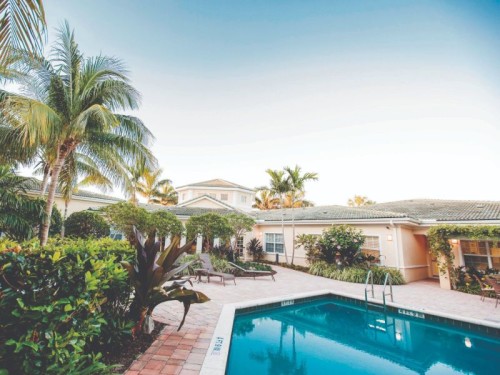

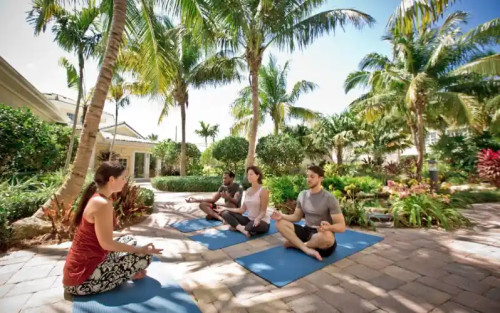
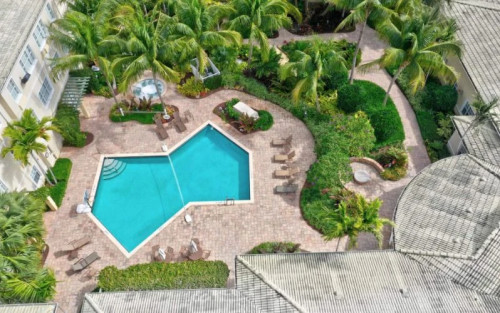
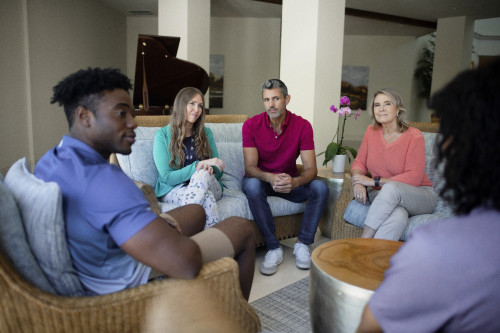




ORENDA Program at Futures Recovery Healthcare
This provider's information has been quality-checked by Recovery.com's Research Team for accuracy and completeness, including center verification through appropriate third-party organizations.
Treatment Focus
This center treats primary substance use disorders and co-occurring mental health conditions. Your treatment plan addresses each condition at once with personalized, compassionate care for comprehensive healing.
Primary Level of Care
Offering intensive care with 24/7 monitoring, residential treatment is typically 30 days and can cover multiple levels of care. Length can range from 14 to 90 days typically.
Treatment Focus
This center treats primary substance use disorders and co-occurring mental health conditions. Your treatment plan addresses each condition at once with personalized, compassionate care for comprehensive healing.
Primary Level of Care
Offering intensive care with 24/7 monitoring, residential treatment is typically 30 days and can cover multiple levels of care. Length can range from 14 to 90 days typically.
Private Pay
You pay directly for treatment out of pocket. This approach can offer enhanced privacy and flexibility, without involving insurance. Exact costs vary based on program and length of stay. Contact the center for specific details.
ORENDA Program at Futures Recovery Healthcare
ORENDA Program at Futures Recovery Healthcare
About ORENDA Program at Futures Recovery Healthcare
Orenda’s Concierge Luxury program facilitates recovery for individuals and families linked to a public persona, committed to high-demand occupations, or unable to remove themselves from the stressors and situations that trigger addiction. Their model of integrated care is designed to meet the needs of high performing, high profile, high achieving individuals. In addition to cutting-edge treatments, advanced testing, and a professional team of providers, Orenda allows a generous electronics policy. They also provide the ability to flex treatment times around work schedules, and sober companions to accompany clients to business meetings or social events.
Clinically Led, Customized Care
At Orenda, their goal is to deliver maximum benefit in the time clients and treatment providers have together. To accomplish this, Orenda envelops clients in a program of analysis, treatment, and wellness services informed by clinical innovation rather than insurance limitations. A wide range of world-class therapies help ensure no barriers stand between Orenda clients and clinically recommended care.
Treatment Catered to Professionals
Ordena believes succeeding in recovery often necessitates fundamental changes to lifestyle, surroundings, and relationships. Their concierge professionals program provides these services and changes for those who may feel unable to focus on recovery and succeed in their professional life. Orenda provides specialized treatment, education, and support services to help clients maintain a demanding lifestyle, their recovery, and a life-long commitment to good health. Orenda coordinates intensive medical, clinical, neurorestorative, and wellness interventions to build a strong foundation of holistic mental, physical, and spiritual well-being. Their services include brain mapping, genomic testing, transcranial magnetic stimulation (TMS), and coordinated care from Ordena’s addiction psychiatrist and 24-7 medical team.
Privacy And Luxury Accommodations
Orenda’s clients have a floor to themselves in Futures’ facility, with specific entrances and keycard access. Clients can enjoy complete privacy or use some of the facility’s amenities like their pool and recreation areas. Private rooms provide space to work, Wi-Fi, maid services, lounge areas, and an eat-in breakfast nook. Orenda’s concierge manages clients’ schedules with outside appointments, work needs, and any transportation needed. Chef-cooked meals make each day restorative on a nutritional level, and luxurious rooms give the space clients need to rest, reflect, and focus on their recovery.

Highlights from the Center
Highlights
These highlights are provided by and paid for by the center.
Perfect for Professionals
Utmost Confidentiality
Private Rooms Only
Tech Friendly
Center Overview
Treatment Focus
This center primarily treats substance use disorders, helping you stabilize, create relapse-prevention plans, and connect to compassionate support.
Joint Commission Accredited
The Joint Commission accreditation is a voluntary, objective process that evaluates and accredits healthcare organizations (like treatment centers) based on performance standards designed to improve quality and safety for patients. To be accredited means the treatment center has been found to meet the Commission's standards for quality and safety in patient care.

Pricing and Program Length
Estimated Center Costs
The cost listed here ($79,500 - $95,000 / 30 days), is an estimate of program cost. Center price can vary based on program and length of stay. Contact the center for more information. Recovery.com strives for price transparency so you can make an informed decision.
Recovery.com Verified Listing
Recovery.com verified that the name, location, contact information and license to operate for this treatment provider are valid and up-to-date.

Licensed by Florida DCF

NAATP Member
Recovery.com is an independent, third-party mental health resource. Verification does not imply endorsement and does not guarantee the quality of treatment services.
Meet your care team

Elizabeth Potts
Executive Director

Dr. Gloria Dunkin
Executive Medical Director
MD

Natalie McGlashan
Clinical Director
LMHC

Amy Effman
Family Therapist
LMFT, CAP
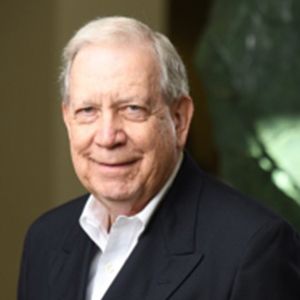
Terry Macho
Orenda Primary Therapist, Group Facilitator
MS, CAP, ICADC

Danara Nelson
Lead Medical and Psychiatric Provider for Orenda
MSN, APRN, NP-C, PMHNP-BC

Cheryl Clopton
Executive Concierge Case Manager
MS

Susan Silverstein-Knee
Orenda Primary Therapist
MSW, MCAP

Willa Keel
Director of Nursing
RN
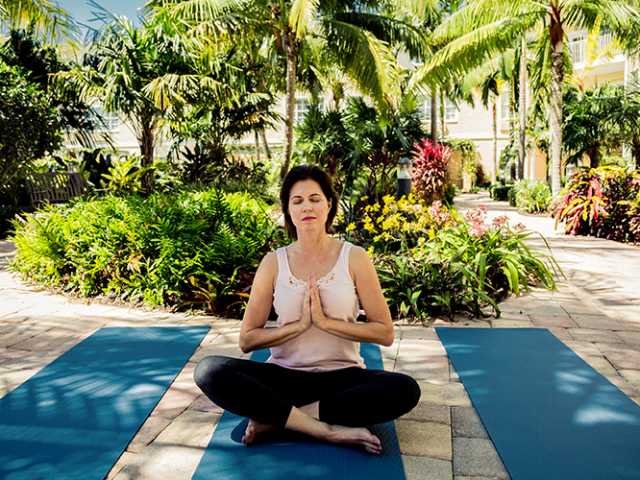



Treatment
Specializations
Co-Occurring Disorders
A person with multiple mental health diagnoses, such as addiction and depression, has co-occurring disorders also called dual diagnosis.
Drug Addiction
Drug addiction is the excessive and repetitive use of substances, despite harmful consequences to a person's life, health, and relationships.
Ultra Luxury
Ultra-luxury rehab centers cater to high-net-worth individuals seeking the pinnacle of comfort and confidentiality during their recovery journey. Resembling five-star resorts, these centers are located in prime, serene locales and offer both lavish amenities like spa treatments and gourmet dining, and world-class therapeutic services.
Executives
Executive treatment programs typically directly support the needs of people who manage businesses and may provide flexible schedules and office space to allow work during treatment.
Chronic Pain Management
Long-term physical pain can have an affect on mental health. Without support, it can also impact your daily life and even lead to addiction.
Alcohol
Using alcohol as a coping mechanism, or drinking excessively throughout the week, signals an alcohol use disorder.
Who We Treat
Veterans
Patients who completed active military duty receive specialized treatment focused on trauma, grief, loss, and finding a new work-life balance.
Men and Women
Men and women attend treatment for addiction in a co-ed setting, going to therapy groups together to share experiences, struggles, and successes.
Executives
Executive treatment programs typically directly support the needs of people who manage businesses and may provide flexible schedules and office space to allow work during treatment.
Professionals
Busy, high-ranking professionals get the personalized treatment they need with greater accommodations for work, privacy, and outside communication.
Treatment Services
Private Therapy
In countries with universal healthcare, people can still choose to get private therapy. This makes it easier to find treatment tailored to your needs.
Residential
In a residential rehab program, patients live onsite, with access to daily treatment and 24-hour care. An average stay is 30-90 days.
Outpatient
During outpatient rehab, patients attend a structured treatment program while continuing to live at home.
Day Treatment
In a PHP, patients live at home but follow an intensive schedule of treatment. Most programs require you to be on-site for about 40 hours per week.
Intensive Family Program
Some rehabs offer intensive programs for loved ones. Group and individual therapy sessions help everyone heal, and improve family dynamics.
Intensive Outpatient Program
In an IOP, patients live at home or a sober living, but attend treatment typically 9-15 hours a week. Most programs include talk therapy, support groups, and other methods.
Detox
Detox fully and safely removes toxic substances from the body, allowing the next steps in treatment to begin with a clean slate.
Approaches
Personalized Treatment
The specific needs, histories, and conditions of individual patients receive personalized, highly relevant care throughout their recovery journey.
Medical
Medical addiction treatment uses approved medications to manage withdrawals and cravings, and to treat contributing mental health conditions.
Evidence-Based
A combination of scientifically rooted therapies and treatments make up evidence-based care, defined by their measured and proven results.
Individual Treatment
Individual care meets the needs of each patient, using personalized treatment to provide them the most relevant care and greatest chance of success.
Wellness
Wellness philosophies focus on the physical, mental, and spiritual wellness of each patient, helping them restore purpose with natural remedies.
Therapies
Seeking Safety
Not looking to the past, patients improve their present circumstances. They work toward safety without detailing traumatic events.
Stress Management
Patients learn specific stress management techniques, like breathing exercises and how to safely anticipate triggers.
Spiritual Care
Tending to spiritual health helps treatment become more effective, allowing patients to better cope with their emotions and rebuild their spiritual wellbeing.
Physiotherapy
Also called physical therapy, this approach includes exercise and various medical treatments for injury, pain, and disease.
Narrative Therapy
Through narrative therapy, patients rewrite past events with a positive focus. They separate themselves from the problem to see their purpose and capabilities.
1-on-1 Counseling
Patient and therapist meet 1-on-1 to work through difficult emotions and behavioral challenges in a personal, private setting.
Family Therapy
Family therapy addresses group dynamics within a family system, with a focus on improving communication and interrupting unhealthy relationship patterns.
Equine Therapy
Guided interactions with trained horses, their handler, and a therapist can help patients improve their self-esteem, trust, empathy, and social skills.
Conditions We Treat
Post Traumatic Stress Disorder
PTSD is a long-term mental health issue caused by a disturbing event or events. Symptoms include anxiety, dissociation, flashbacks, and intrusive thoughts.
Anxiety
Anxiety is a common mental health condition that can include excessive worry, panic attacks, physical tension, and increased blood pressure.
Depression
Symptoms of depression may include fatigue, a sense of numbness, and loss of interest in activities. This condition can range from mild to severe.
Schizophrenia
Schizophrenia is a serious mental health condition that causes hallucinations, delusions, and disordered thinking.
Grief and Loss
Grief is a natural reaction to loss, but severe grief can interfere with your ability to function. You can get treatment for this condition.
Codependency
Codependency is a pattern of emotional dependence and controlling behavior. It's most common among people with addicted loved ones.
Pornography Addiction
A person with a porn addiction is emotionally dependent on pornography to the point that it interferes with their daily life and relationships.
Gambling
Excessive, repetitive gambling causes financial and interpersonal problems. This addiction can interfere with work, friendships, and familial relationships.
Internet Addiction
Internet addiction is common among children teens. This compulsive disorder can damage relationships, school performance, sleep habits, and physical health.
Personality Disorders
Personality disorders destabilize the way a person thinks, feels, and behaves. If untreated, they can undermine relationships and lead to severe distress.
Substances We Treat
Cocaine
Cocaine is a stimulant with euphoric effects. Agitation, muscle ticks, psychosis, and heart issues are common symptoms of cocaine abuse.
Prescription Drugs
It's possible to abuse any drug, even prescribed ones. If you crave a medication, or regularly take it more than directed, you may have an addiction.
Benzodiazepines
Benzodiazepines are prescribed to treat anxiety and sleep issues. They are highly habit forming, and their abuse can cause mood changes and poor judgement.
Ecstasy
Ecstasy is a stimulant that causes intense euphoria and heightened awareness. Abuse of this drug can trigger depression, insomnia, and memory problems.
Co-Occurring Disorders
A person with multiple mental health diagnoses, such as addiction and depression, has co-occurring disorders also called dual diagnosis.
Psychedelics
Hallucinogenic drugs—like LSD—cause euphoria and increased sensory experiences. When abused, they can lead to depression and psychosis.
Drug Addiction
Drug addiction is the excessive and repetitive use of substances, despite harmful consequences to a person's life, health, and relationships.
Chronic Relapse
Consistent relapse occurs repeatedly, after partial recovery from addiction. This condition requires long-term treatment.
Languages
Aftercare
Experience
Personal Amenities
Amenities
Special Considerations
Healthy Meals are provided
Great food meets great treatment, with providers serving healthy meals to restore nutrition, wellbeing, and health.
Clients can bring their own pet(s)
For greater comfort and healing, pet-friendly treatment centers welcome dogs and animal companions to stay with their owners while they attend treatment.
Activities
Yoga
Yoga is both a physical and spiritual practice. It includes a flow of movement, breathing techniques, and meditation.
Off-Site Activities
Off-Site Amenities

Learn More About the Center
Meditation for Rehab: Healing Mind and Body at Futures
Meditation is more than a calming ritual, it’s a scientifically backed, holistic therapy that supports long-term recovery from addiction and mental health challenges.
Benefits of Leisure Activities for Mental Health
For individuals navigating the challenges of addiction or mental health conditions, healing must go beyond medication and therapy. True, sustainable recovery means learning to live a joyful, balanced life again, and leisure activities play a powerful role in making that possible.
Environmental Factors of Alcoholism: How Surroundings Influence Recovery
Alcoholism is a complex condition influenced by a combination of genetic, psychological, and environmental factors of alcoholism. While genetics and mental health play significant roles, the environment, where we live, work, and socialize, can profoundly impact both the development of addiction and the success of recovery.
Take a Tour of Orenda
See pictures of Orenda’s accommodations to get an idea of what luxuries to expect during treatment.
What people are saying
Accommodations
Food & Nutrition
Treatment
Value
Pros
- Beautiful Location (2)
- Excellent & Effective Treatment Programming (2)
- Personalized (2)
- Gourmet & Nutritious Food (2)
See More
Kevin B
Pat
DJL
We love hearing about your treatment experience
Help individuals and families seeking treatment by sharing your first-hand experience with this treatment provider. Review Guidelines.





